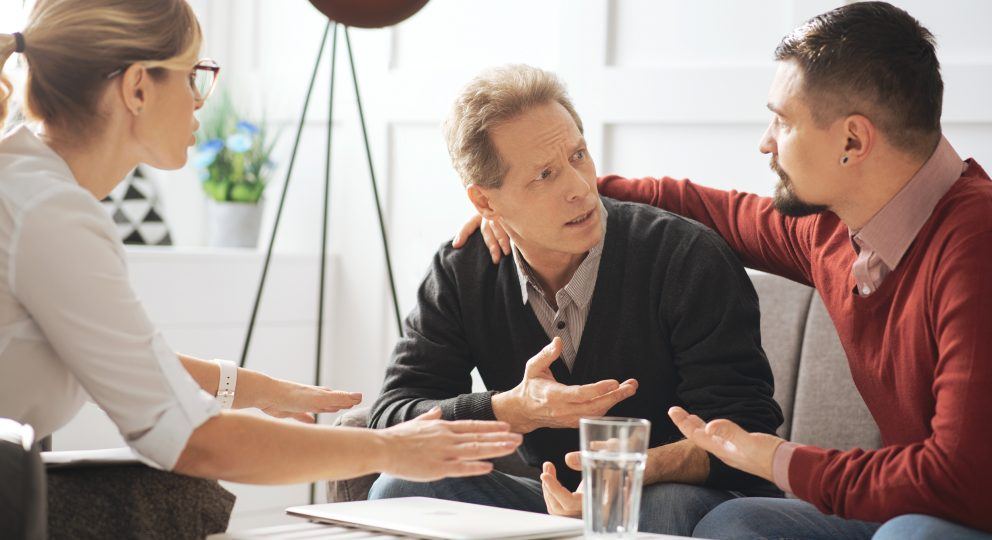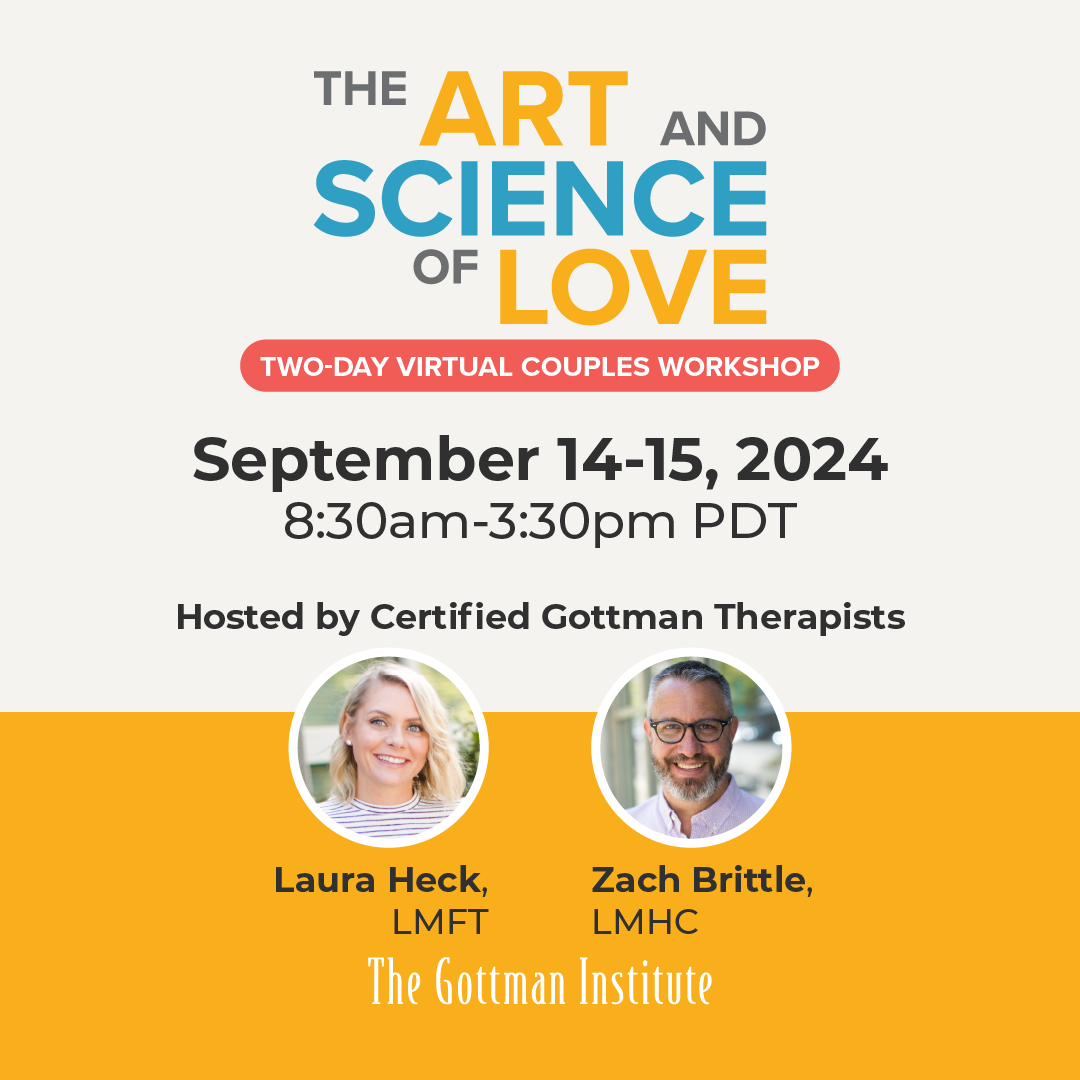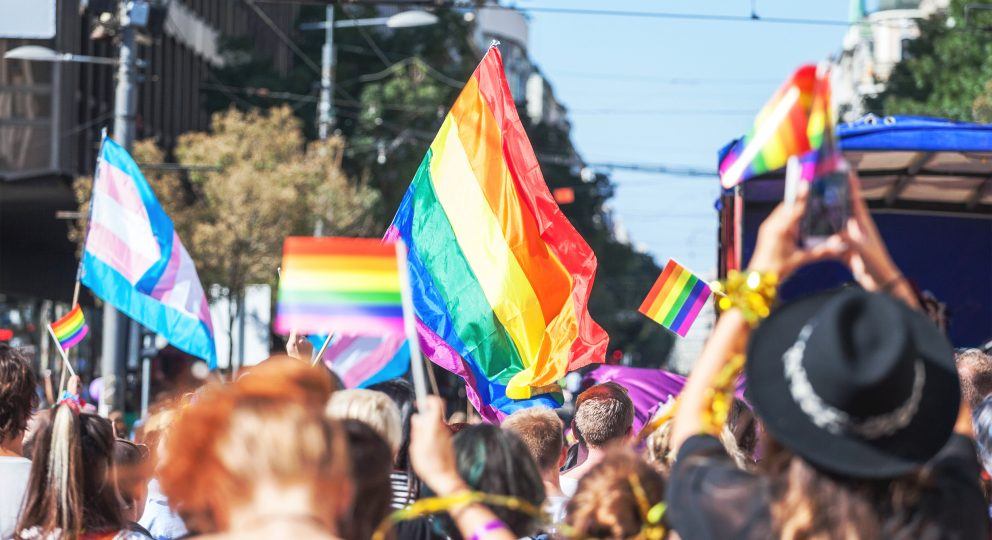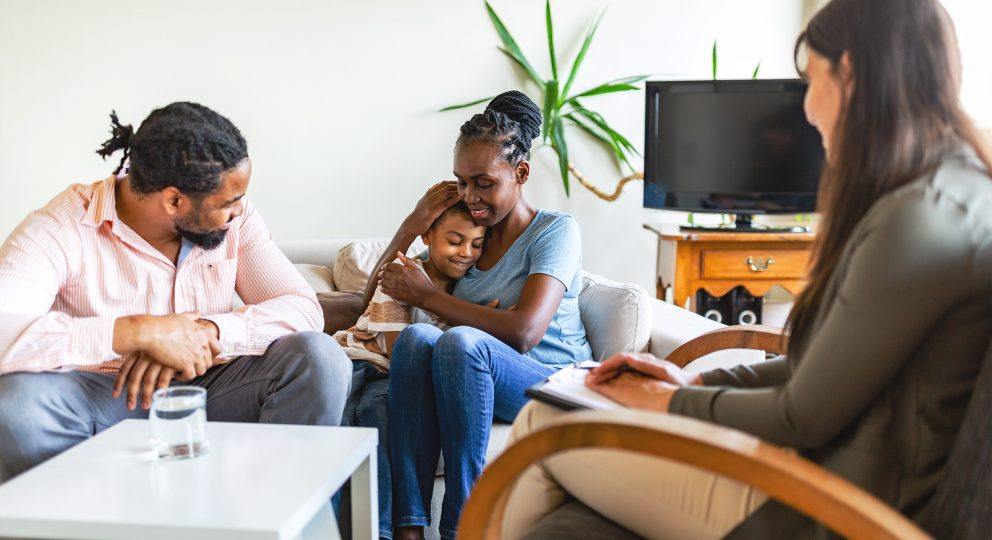Choosing which theory to utilize when working with couples not only needs to reflect the personality and competence of the clinician, but it also needs to be of value and serve the needs of the client. They deserve to know their clinician vetted the theory. They want to trust that the chosen interventions reflect the stressors, societal expectations, and internal pressures experienced in their lives.
The most popular theories of couples therapy were developed with opposite-sex partners who hoped to avoid divorce. Because a large portion of the clients I see identify as being lesbian or gay, I was aware these clients didn’t have the right to marry, or therefore divorce, until the Supreme Court hearing of Obergefell v Hodges in 2015 (Obergefell V. Hodges, 2019). Thus, a clinician who works with gay and lesbian couples must make sure the theories that they ask their clients to incorporate into their relationship are appropriate for the goals and presenting issues that often differ from heterosexual couples.
Differences in same-sex couples therapy
In my search for the right theory for my same-sex clients, my first goal was to consider whether the factors driving couples to therapy were the same for both same-sex and opposite-sex partners. Research showed that both same-sex and heterosexual couples share common goals of desiring better communication, wanting shared values, needing to navigate personal differences to make them complementary, and desiring to feel supported and committed to their partners (Riggle et al., 2016).
However, competent couples therapists should be aware of the common differences in regard to the issues that get layered into the relationship experiences due to their sexual identity. Because of the way society has historically treated gays and lesbians, same-sex partners may be more vulnerable to relationship distress. They face the challenges of dealing with developmental stages of acceptance around their gender identity, societal discrimination, and worries of concealing relationships from friends and family (Macapagal, Greene, Rivera, & Mustanski, 2015). Additionally, issues commonly occurring in gay and lesbian relationships arise around issues of commitment stages, norms regarding monogamy, and differing levels of HIV risks that are not generally present for heterosexual couples (Macapagel et al., 2015).
Emotional intimacy is a goal for all couples regardless of gender orientation. However, internalized shame and guilt as a result of sexual orientation concealment tends to negatively impact many same-sex partners in their comfort level of expressing emotional intimacy (Guschlbauer, Smith, DeStefano, & Soltis, 2019). For too many same-sex partners, the strain of living with uncertainty and inconsistent messages about societal acceptance about their right to marry has taken a toll both socially and psychologically. These messages from society have often led to confusion amongst gay and lesbian partners and struggles with whether to embrace the typical symbols of heteronormative commitment (Holley, 2017).
The Gottman Method and working with same-sex couples
The Gottman Method identifies itself as a multidimensional therapeutic approach to working with couples counseling that moves partners from conflict to comfortable exchanges by enhancing basic social skills. The method also sets out to develop an awareness of the interpersonal pitfalls associated with the relationship behaviors of criticism, contempt, defensiveness, and stonewalling. Some of the goals of the Gottman Method are to replace those identified negative behaviors, which are shown to undermine relationships, with more civil ways of expressing disapproval, building a culture of appreciation, acceptance, mutual responsibility for problems, and self-soothing (Lopez, Pedrotti, & Snyder, 2019).
An uncontrolled study by The Gottman Institute published in 2017 collected and measured relationship satisfaction at five separate time points using the Gottman Method of Couples Therapy with gay and lesbian couples. The data showed significant improvement following 11 sessions of therapy for both gay male and lesbian female couples. The study suggests the Gottman Method was highly effective for same-sex couples. Gay and lesbian couples improved more than twice as much as most heterosexual couples did in nearly half as many sessions as was typical for heterosexual couples using the Gottman Method (Garanzini et al., 2017).
Some of the reasons were based on the belief that same-sex couples generally function better than heterosexual couples because of smaller gender-role and inequality. For same-sex couples, they are often socialized similarly concerning gender roles and may share more similar communication styles than opposite-sex couples. Variables such as the distribution of household chores, division of finances, a sense of play, equality of support, and communication play a more important role in relationships of same-sex partners than heterosexual relationships (Garanzini et al., 2017).
The study also suggested that, while the issues happening for same-sex partners were not necessarily easier to manage than those of their opposite counterparts, the Gottman Method platform created a way for couples to discuss their unique preferences for equality in the relationship (Garanzini et al., 2017). Use of the Gottman Method interventions offered same-sex couples ways to improve their relationships in the themes that were identified as contributing to relationship longevity and taught ways of communicating antidotes to criticism and defensiveness that could be applied to their unique relationship challenges. Same-sex couples also reported that as a result of the new communication techniques taught in the Gottman Method, they experienced support in building their friendship connection and were able to rekindle sexual sparks in their relationships. (Garanzini et al., 2017).
Takeaways and recommended research
The challenge presented to all clinicians who work with couples is to set aside their own assumptions or judgments about what is best for their clients and meet them where they are at in achieving their desired relationship goals. Some of the roadblocks couples therapists encounter working with same sex-partners may require clinicians to evaluate if the “tried-and-true” theories they have been using with their opposite-sex partners is valid for all of the populations they serve.
Ideally, research needs to address if it is warranted to develop separate couples theories that address the unique needs of gay versus lesbian partners. Much of the research that is currently available seems to clump same-sex partners together as one category. The idea that “one size fits all” does not apply to same-sex partners. Clients have gender differences, life experiences, and the communication pattern styles attached to being male or female. This creates a need to be addressed individually.
Are you currently looking for a Certified Gottman Couples Therapist to use research-based approaches to help your relationship? The Gottman Institute is seeking couples to participate in an international outcome study on Gottman Method Couples Therapy. Learn more here.
References:
Garanzini, S., Yee, A., Gottman, J., Gottman, J., Cole, C., Preciado, M., & Jasculca, C. (2017). Results of Gottman method couples therapy with gay and lesbian couples. Journal of Marital and Family Therapy, 43(4), 674-684. doi:https://doi.org/10.1111/jmft.12276
Guschlbauer, A., Smith, N. G., DeStefano, J., & Soltis, D. E. (2019). Minority stress and emotional intimacy among individuals in lesbian and gay couples: Implications for relationship satisfaction and health. Journal of Social and Personal Relationships, 36(3), 855-878. doi:https://doi.org/10.1177/0265407517746787
Holley, S. R. (2017). Perspectives on contemporary lesbian relationships. Journal of Lesbian Studies, 21(1), 1-6. doi:https://doi.org/10.1080/10894160.2016.1150733
Lopez, S. J., Pedrotti, J. T., & Snyder, C. R. (2019). Positive psychology (Fourth ed.). Thousand Oaks, CA: SAGE Publications, Inc.
Macapagal, K., Greene, G. J., Rivera, Z., & Mustanski, B. (2015). “The best is always yet to come”: Relationship stages and processes among young LGBT couples. Journal of Family Psychology, 29(3), 309-320. doi:https://doi.org/10.1037/fam0000094
Obergefell V. Hodges. (2019). Oyez. Retrieved from https://www.oyez.org/cases/2014/14-556
Riggle, E. D. B., Rothblum, E. D., Rostosky, S. S., Clark, J. B., & Balsam, K. F. (2016). “The secret of our success”: Long-term same-sex couples’ perceptions of their relationship longevity. Journal of GLBT Family Studies, 12(4), 319-334. doi:https://doi.org/10.1080/1550428X.2015.1095668










